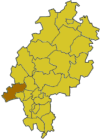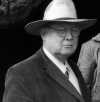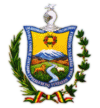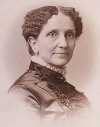Definition: (noun) A mild contagious eruptive disease caused by a virus and capable of producing congenital defects in infants born to mothers infected during the first three months of pregnancy.
Synonyms: German measles, epidemic roseola, three-day measles.
Usage: The parents were relieved when the doctor said that their son's rubella would improve in a matter of days.
Discuss
Source: The Free Dictionary
 The RMS Carpathia was a Cunard Line transatlantic passenger steamship that first became famous for rescuing more than 700 survivors of the Titanic disaster in 1912. Six years later, during WWI, the Carpathia was travelling in a convoy when it was torpedoed off the east coast of Ireland by the German submarine U-55. Many of the passengers and crew members were rescued by the HMS Snowdrop the following day. When was the steamship’s wreckage discovered?
The RMS Carpathia was a Cunard Line transatlantic passenger steamship that first became famous for rescuing more than 700 survivors of the Titanic disaster in 1912. Six years later, during WWI, the Carpathia was travelling in a convoy when it was torpedoed off the east coast of Ireland by the German submarine U-55. Many of the passengers and crew members were rescued by the HMS Snowdrop the following day. When was the steamship’s wreckage discovered?  A 600-year-old
A 600-year-old  After serving as a trial lawyer for many years, Gardner began writing detective stories for magazines in the early 1920s. He became a prolific novelist whose narratives were characterized by fast action and clever legal devices—which he based on his own courtroom tactics. His most famous character was the unconventional lawyer Perry Mason, who appeared in more than 80 novels and inspired a television series. Gardner published his stories under at least seven pseudonyms. What were some of them?
After serving as a trial lawyer for many years, Gardner began writing detective stories for magazines in the early 1920s. He became a prolific novelist whose narratives were characterized by fast action and clever legal devices—which he based on his own courtroom tactics. His most famous character was the unconventional lawyer Perry Mason, who appeared in more than 80 novels and inspired a television series. Gardner published his stories under at least seven pseudonyms. What were some of them?  Lady Godiva was a noblewoman and a benefactor of several monasteries. According to legend, her husband agreed to remit the heavy taxation on the people of Coventry if she would ride naked through the town on a white horse. Lady Godiva took him at his word and, after issuing a proclamation that all the townspeople go indoors and shut their windows, she rode through, clothed only in her long hair. According to the legend, all but one of the townspeople obeyed her ordinance; who disobeyed?
Lady Godiva was a noblewoman and a benefactor of several monasteries. According to legend, her husband agreed to remit the heavy taxation on the people of Coventry if she would ride naked through the town on a white horse. Lady Godiva took him at his word and, after issuing a proclamation that all the townspeople go indoors and shut their windows, she rode through, clothed only in her long hair. According to the legend, all but one of the townspeople obeyed her ordinance; who disobeyed?  Called the Trinity test, the first test of a nuclear weapon was conducted by the US in New Mexico on what is now White Sands Missile Range. The detonation of the implosion-design plutonium bomb—the same type used on Nagasaki, Japan, a few weeks later—was equivalent to the explosion of approximately 20 kilotons of TNT, and is usually considered the beginning of the Atomic Age. It is said that the scientists who observed the detonation set up a betting pool on what the result would be. Who won?
Called the Trinity test, the first test of a nuclear weapon was conducted by the US in New Mexico on what is now White Sands Missile Range. The detonation of the implosion-design plutonium bomb—the same type used on Nagasaki, Japan, a few weeks later—was equivalent to the explosion of approximately 20 kilotons of TNT, and is usually considered the beginning of the Atomic Age. It is said that the scientists who observed the detonation set up a betting pool on what the result would be. Who won? 
 Eddy was the founder of the Christian Science movement, which preaches the principles of divine healing. After allegedly suffering a back injury in 1866, Eddy reportedly turned to the Bible and was unexpectedly healed. She considered that moment her discovery of Christian Science and spent the next few years refining the doctrine and plans for her new church. In 1879, the Church of Christ, Scientist was founded in Massachusetts. What newspaper, founded by Eddy in 1908, is still published today?
Eddy was the founder of the Christian Science movement, which preaches the principles of divine healing. After allegedly suffering a back injury in 1866, Eddy reportedly turned to the Bible and was unexpectedly healed. She considered that moment her discovery of Christian Science and spent the next few years refining the doctrine and plans for her new church. In 1879, the Church of Christ, Scientist was founded in Massachusetts. What newspaper, founded by Eddy in 1908, is still published today?  Quartz, which can split light into a spectrum, is one of the most common of all rock-forming minerals and one of the most important constituents of the earth’s crust. Quartz may be transparent, translucent, or opaque; it may be colorless or colored. Varieties are classified as crystalline and cryptocrystalline, whose crystal structure can be seen only under the microscope, if at all. What is quartz’s rank on the Mohs scale of hardness?
Quartz, which can split light into a spectrum, is one of the most common of all rock-forming minerals and one of the most important constituents of the earth’s crust. Quartz may be transparent, translucent, or opaque; it may be colorless or colored. Varieties are classified as crystalline and cryptocrystalline, whose crystal structure can be seen only under the microscope, if at all. What is quartz’s rank on the Mohs scale of hardness?